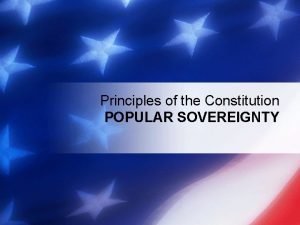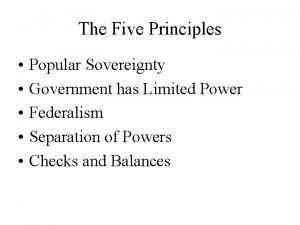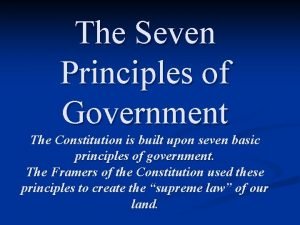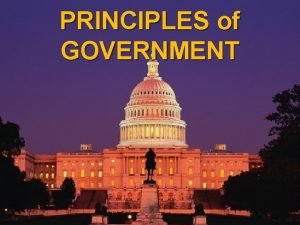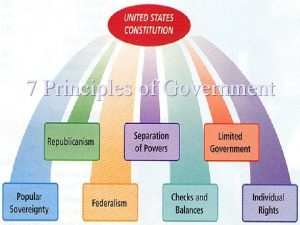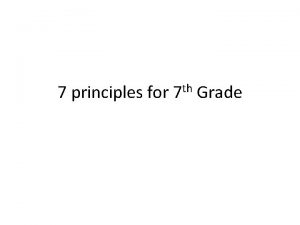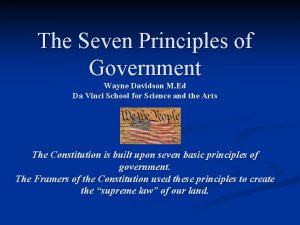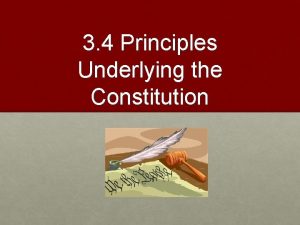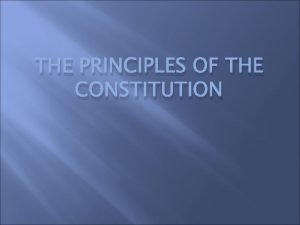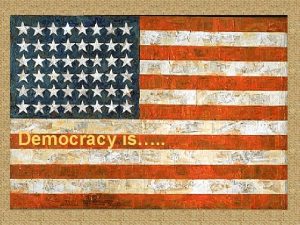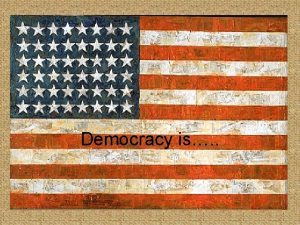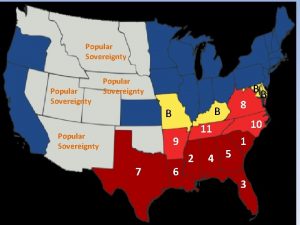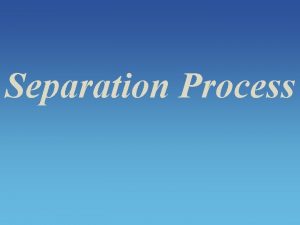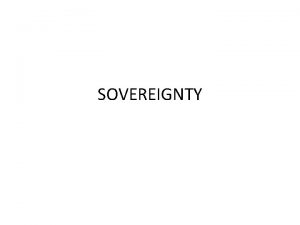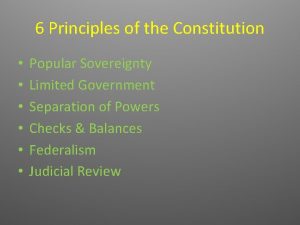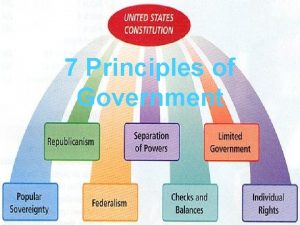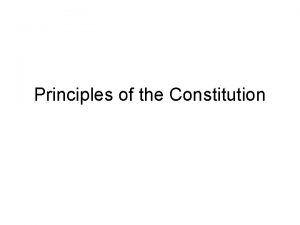Six Principles Popular Sovereignty Limited Government Separation of













- Slides: 13

Six Principles: Popular Sovereignty Limited Government Separation of Powers Checks and Balances Rule of Law Federalism

1. Popular Sovereignty • Citizens of the country oversee the government and how it is run. • People can vote on who represents them in the area that live

2. Limited Government • How much power the government can have • Determined by how much we decide to give

3. Separation of Powers • Designed to divide the power among the three branches of government for each group are selected by and responsible for different constitutes

4. Checks and Balances • Checks and balances operate throughout the U. S. government, as each branch exercises certain powers that can be checked by the powers given to the other two branches. • Some degree of oversight and control over the actions of others

• No one is exempt from the law, including government officials 5. Rule of Law

https: //www. youtube. com/watch? v=YSC_OOgbx. YQ

6. Federalism • A system of government where powers are equally divided between state and local governments • The state government oversees a small portion of people who live within their state, and the national government controls everyone who lives in the nation.

10 th Amendment “The powers not delegated to the United States by the Constitution, nor prohibited by it to the States, are reserved to the States respectively, or to the people. ” What does this mean? Why is this important?

Expressed Powers Division of Powers Reserved Powers Concurrent Powers

Expressed Powers • Powers expressly written in the Constitution • Collect taxes • Regulate foreign trade • Maintain armed forces (military) • Declare War • Coin Money • Special Powers to President • Pardons, make treaties, , command the army

Reserved Powers • States can create laws simply because the Constitution does not say they cannot • Marriage laws • Driving laws • Licensing (plumbers, hairdressers, lawyers) • Creating public school systems • College and university systems • Gambling

Concurrent Powers • Powers shared by the state and national governments • Collect taxes • Create and enforce laws • Eminent domain
 Popular sovereignty constitution
Popular sovereignty constitution Popular sovereignty
Popular sovereignty Sovereignty definiton
Sovereignty definiton Popular sovereignty examples
Popular sovereignty examples Popular sovereignty
Popular sovereignty Popular sovereignty definition
Popular sovereignty definition Popular sovereignty definiton
Popular sovereignty definiton Limerick poem creator
Limerick poem creator Popular sovereignty
Popular sovereignty Popular sovereignty
Popular sovereignty Popular sovereignty
Popular sovereignty Democracy cartoon analysis
Democracy cartoon analysis Popular sovereignty cartoon
Popular sovereignty cartoon Popular sovereignty songs
Popular sovereignty songs
